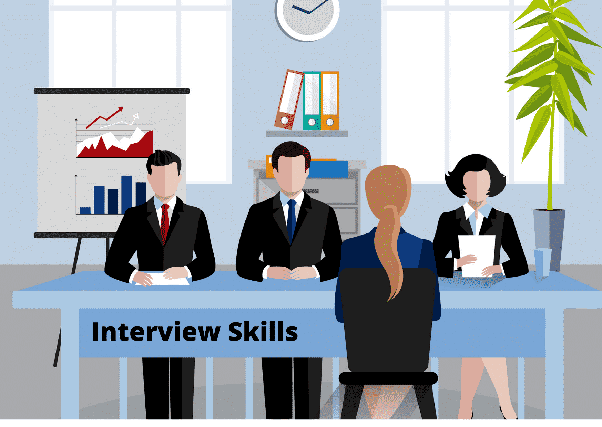Interview skills are essential for effectively communicating your qualifications, experiences, and personality to potential employers during a job interview. Important points for facing the interview.
- Preparation:
- Research the company, its values, products/services, and recent news.
- Understand the job description and requirements thoroughly.
- Prepare thoughtful questions to ask the interviewer.
- Communication:
- Articulate your thoughts clearly and concisely.
- Practice active listening to show your interest and understanding.
- Use proper language and avoid jargon or overly technical terms.
- Body Language:
- Maintain eye contact to convey confidence and attentiveness.
- Offer a firm handshake at the beginning and end of the interview.
- Sit up straight and maintain an open posture.
- Verbal Communication:
- Speak confidently, at a moderate pace, and with a clear tone.
- Avoid using fillers such as “um,” “uh,” or “like.”
- Use positive language to describe your experiences and accomplishments.
- Dressing Appropriately:
- Choose attire that aligns with the company culture and the job position.
- Dress slightly more formally than the company’s dress code if unsure.
- Problem-Solving and Critical Thinking:
- Be prepared to discuss how you’ve handled challenges in the past.
- Highlight your ability to think on your feet and adapt to different situations.
- Teamwork and Collaboration:
- Share examples of how you’ve worked successfully in a team.
- Discuss your ability to contribute to a positive team dynamic.
- Time Management:
- Be punctual for the interview.
- If given a task or case study, manage your time effectively to provide a well-thought-out response.
- Confidence and Enthusiasm:
- Project confidence in your abilities without coming across as arrogant.
- Show genuine enthusiasm for the role and the company.
- Flexibility and Adaptability:
- Demonstrate your willingness to learn and adapt to new challenges.
- Discuss instances where you successfully adapted to changes.
- Self-Awareness:
- Be prepared to discuss your strengths, weaknesses, and areas for improvement.
- Frame weaknesses as opportunities for growth and learning.
- Answering Behavioral Questions:
- Use the STAR method (Situation, Task, Action, Result) to structure your responses to behavioral questions.
- Provide specific examples that showcase your skills and experiences.
- Follow-Up Etiquette:
- Send a thank-you email or note after the interview, expressing your appreciation for the opportunity and reiterating your interest.
- Stress Management:
- Stay calm under pressure and manage nervousness effectively.
- Take a moment to gather your thoughts before answering challenging questions.
- Cultural Fit:
- Highlight your alignment with the company’s values and culture.
- Emphasize how you can contribute positively to the organization.
Remember, mastering these interview skills takes practice and self-awareness. Each interview is a learning opportunity, so take note of what went well and what could be improved after each experience.


